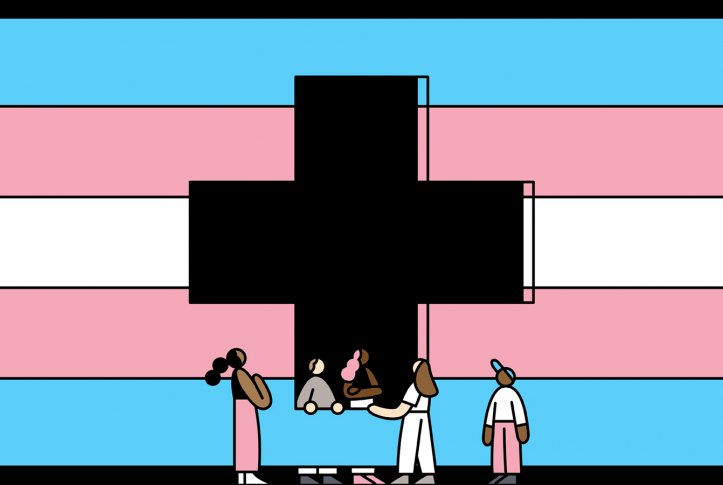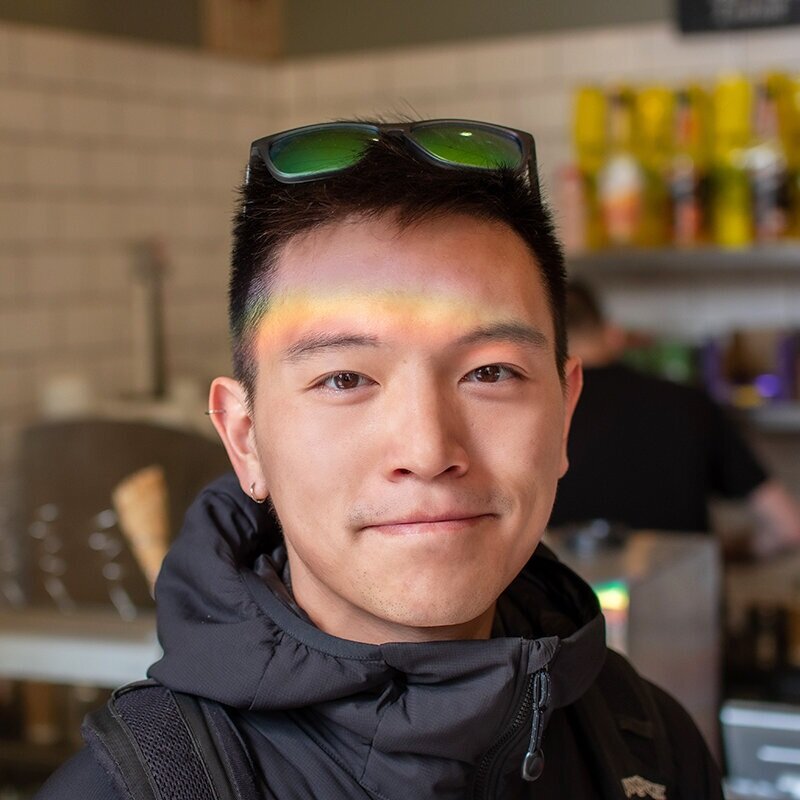Leah Pistorius
March 31, 2023

Illustration by Rose Wong The Commonwealth Fund
Calvin Liang, a PhD candidate in the Department of Human Centered Design & Engineering, is working with trans and queer youth to design an online sex education resource and build more inclusive sexual health experiences for all.

Calvin Liang, PhD Candidate, University of Washington Human Centered Design & Engineering
Transgender and queer youth are often overlooked in traditional sex education, leading them to seek information online from places that are often unvalidated, unmoderated, and open to misinformation. At the same time, online spaces can provide trans and queer youth with a valuable outlet for exploring their identities, seeking information, and connecting with community.
Calvin Liang wants to empower trans and queer youth to take control of their online tools by identifying their specific design needs when exploring sexual health topics.
Leading a team of researchers including Dr. Julie Kientz from HCDE, Dr. Kym Ahrens from the Seattle Children's Research Institute, Dr. Molly Altman from UW School of Nursing, and Dr. Alic Shook from the Seattle University College of Nursing, Liang initially started this project in 2018 by understanding the current environment for trans and queer youth when looking for sex education resources.
By conducting a series of focus groups and co-design sessions with trans and non-binary young people in the greater Seattle area, the research team documented needs, gaps, and opportunities related to searching for sexual health information to inform the design of an online, interactive sex education tool.
This research was published in 2020 in Proceedings of the Interaction Design and Children Conference, where it received an honorable mention award.
"Not only did this initial study help us identify the design needs of an interactive tool, but it also helped us articulate how you can do this kind of work – how to have these conversations about relationships and sexual health with trans and queer young people," Liang said. "We hope our findings can influence other researchers that work with marginalized youth to approach these topics in a non-stigmatizing and safe way."
Centering trans experiences
Thanks to funding from the National Institute of Child Health and Human Development at the National Institutes of Health, with lead researcher Kym Ahrens, Liang and his team are now in the middle of a two-year project to expand the initial study and partner with a community advisory board to inform the design of an inclusive, comprehensive, and affirming sex education tool.
The Community Advisory Board (CAB) consists of trans young people from across the US, aged 16 through 25, diverse in race, gender identities, and geographic region. According to Liang, this CAB was intentionally designed to center the perspectives of Black, Latine, and Asian-American youth and additional viewpoints that are not traditionally represented in computing research.
The researchers meet monthly with the CAB for co-design sessions, where they brainstorm new ideas and design features. Members of the advisory board share their perspectives and feedback and collaborate on prototyping and testing designs.
Through this collaborative design approach, the needs and expertise of trans youth are centered in the design. There are increasingly more social support groups for trans young people today, but this group is unique by positioning CAB members as experts of their own lives and drivers of research that affects their own health-related issues.
"Our advisory board is made of diverse trans young folks from all over the US, including from states where their basic rights to health care are currently being legislated against," Liang said. "In such an isolating time, we are paying a lot of attention to the benefits these youth are finding by being in community together. Witnessing the really positive interpersonal connections among the group makes this work all the more meaningful to me."
Reframing traditional sex education
Liang hopes that this project can be useful for anyone designing resources for sex education, and will help create a more comprehensive, inclusive, and age-appropriate experience for everyone.
In addition to surfacing the basics of sex education based on feedback from transgender and non-binary youth, Liang's team is focused on the relational aspects of sexual health. "While we of course are covering things like STI prevention, birth control, PrEP, and other critical topics, we're also talking about things like navigating consent, disclosure of your trans identity with your partner, and other issues raised by our advisory board," Liang said.
Ensuring privacy, safety, and age-appropriate information delivery is also a critical component of this project. “Partnering with the community advisory board has provided valuable insight into how each of these affects the lives of young trans people today and how future technologies can provide safe, secure, and relevant information,” Liang said. “For example, one previous finding warned against using an obviously trans-based aesthetic like using the trans colors because of concerns that opening up the platform in public might out them to others around them.” With the help of trans young people involved in the design process, Liang and his team have learned how providing private, safe, and relevant information must consider the social constraints that affect users’ technical experiences.
Building a more inclusive future
A guiding principle of this work is that trans people deserve the tools to learn how to have healthy, sexual, and romantic relationships.
Given the absence of sex education that encompasses trans and queer experiences, there is a timely opportunity for new tools that are designed for inclusion.
"Despite what some people might try to tell them, trans and queer youth have a place in research and in this world,” Liang said. “They deserve access to healthcare and online resources that affirm their identities and make them feel seen."